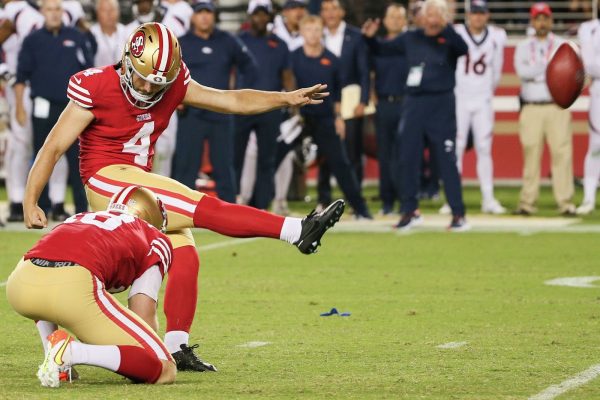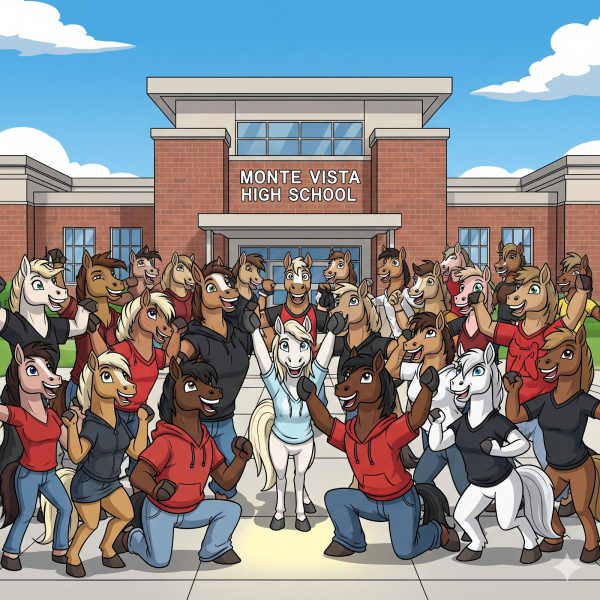High school debate competitions don’t reflect real politics
High school debate may very well be the starting point for many future political leaders. Students debate on policy, values, and resolutions to ultimately cultivate their argument and speaking skills. However, the intellectual game within high school debate has sparked a divergence from the original spirit of debate. Real political debates don’t revolve around a simple argument that can be easily scored, and what a debater learns in high school competitions doesn’t necessarily translate into what is needed to become a skilled politician.
High school debate centers around two types of debate events: Lincoln-Douglas Debate (L.D.) and Public Forum Debate (PuFo). The original idea saw L.D. as a one-on-one debate on values and logic and PuFo as a two-on-two debate on current events. Both types of debates were created in an effort to avoid speed reading evidence known in the debate world as “spreading”, and instead to promote critical thinking and speech quality. PuFo, as hinted in the name, was created so that any reasonably informed member of the public could watch a round and pick a winner.
However, the state of these events has far deviated from the original plan, and we are back to seeing debaters rattle off arguments and hard rebuttals at blistering speeds and aggression, in an effort to destroy their opponent’s case. Debaters reach speeds of 300 words per minute, which is over twice as fast as an average conversational pace. Since time is limited, they need to get all of their points and evidence across by talking extremely fast.
The actual validity of the argument comes second to your ability to argue that point. If your opponent can’t ultimately respond and take down your claim, you essentially win that argument, which helps you win the round. This primarily catalyzes the “spreading” strategy used widely by debaters attempting to gain an edge over their opponent, and causes the quality of debates to decrease.
David Matley, the Speech and Debate coach at Monte Vista, has seen the gradual changes that high school debate has undergone through his 30 years of coaching experience.
“L.D. was originally created to avoid speed reading of evidence by focusing more on values,” Matley said. “But the event has morphed into a policy- like debate where large amounts of evidence then become necessary.”
The strategies of debate also include how each judge thinks. As your success in the competition is completely in the hands of the judge, you must argue in the most appealing way to the judge in order to win the round. Such preferences can highly fluctuate between judges.
“If a judge prefers cases with mostly hard evidence and statistics, the only way to win the round is to provide more than your opponent,” Matley said.
Many efforts to provide large amounts of evidence and claims result in students then making faulty claims with evidence that either doesn’t support their claim, or is simply fake.
Samira Sinha and Audrey Kamena compete in L.D. and PuFo respectively, and have both had experience with people presenting fake evidence.
“I’ve lost a round before because all my contentions got refuted by fake evidence,” Sinha said. “My opponent later admitted to using fake evidence for the sake of winning the round.” Presenting fake evidence isn’t always obvious, and judges won’t always realize it. Kamena has also seen attempts to gain the upper hand.
“People brought up evidence that was either fake or didn’t strongly support their claims,” Kamena said. “It’s also common, especially in JV, for people to bring new arguments in the last speech, which isn’t allowed.”
Debaters prioritize victory over truth seeking, which doesn’t reflect what politicians need to gain the trust of the public. Speech and Debate puts students in real court case scenarios which, in turn, encourages the development of persuasion and research skills. Because after all, persuading the judge and jury is the ultimate goal. L.D. and PuFo debates see the same idea, where winning the round is purely based off of whether you presented your case is a more convincing way. You simply need to convince the judge that your case is better.
However, the political debates we see and hear on the television and radio don’t simply focus on a person’s ability to argue and all the evidence they have. Their position and their logic behind their position is what ultimately leads to voting decisions, not how well they can argue a point that many people don’t agree with.
While high school debate offers unmatched development in research and presentation skills, its emphasis on critical thinking, reasoning, and truth has waned, which is ultimately what our political world is in strong need of.

Edi Zhang is a senior and will spend his fourth year on The Stampede as the Editor-in-Chief. He is honored...





